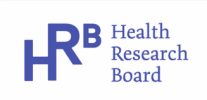Case Study
Home > Case Studies > Embedding PPI across a PhD programme

PPI Ignite network
Embedding PPI across a PhD programme
A PhD training programme, funded by the Health Research Board, involving four PhD scholars focused on the research theme of complex multimorbidity, started in Autumn 2018 and is ongoing. At that time, training in PPI methods was not typically included in PhD training. (Multimorbidity means living with more than one ongoing health condition.)
PPI has been a core element of the PhD programme from the start, with PPI input when the research proposal was being written. Formal PPI training was included early in the PhD programme, with additional training provided later on, as well as an additional, invaluable opportunity for the PhD scholars to “learn by doing” and by reflecting on the experience of establishing and working with a PPI panel.
A PPI group of nine people, comprising people living with more than one ongoing health condition (or ‘multimorbidity’) or their carers, was established in May 2018. PPI contributors were recruited through a mix of professional networks, personal networks and local organisations, eg general practices and local charities. Potential PPI panel members who expressed interest were initially contacted by phone to explain the processes, roles and expectations of all involved.
The panel members reflect the clinical diversity of people living with multiple co-occurring conditions, and panel members bring a range of experiences of accessing health services through the different routes available in the Irish system.
When setting the research questions for the four PhD studies, the research leader, Prof Susan Smith, discussed the proposed research with an existing PPI group supporting primary care researchers (that is, research being conducted through general practices and other community-based health services).
Since the establishment of the PPI panel to support the four PhD projects, the PPI contributors have been engaged in:
- the design of research studies, including how to optimise recruitment processes and materials through appropriate language use and content of invitation letters
- The development and structuring of interview and survey questions for data collection
- Validating results from the analysis of interview data
- Giving valuable input for the design of infographics to recruit participants and to share research findings
- Being PPI ambassadors by sharing the experience of their involvement with the members of the International Advisory Board of the PhD training programme
Research question
When discussing the research questions, the PPI group focused in on the cost to the patient of attending the myriad of health appointments: transport and parking costs, time costs if a family member took time off work to provide transport etc. This discussion led to a new research question for one PhD study. The feedback on the other research questions confirmed that the research aims, with minor modifications, were important to people living with more than one ongoing condition.
Language
Very early in the PPI process, the panel expressed their dislike of the term ‘multimorbidity’. The term was considered to be very academic and was perceived to have negative connotations. Equally words like ‘chronic’ and ‘long-term’ were not liked by the panel in reference to health conditions. We therefore worked through this with the panel to decide an appropriate term that could be used in communications with potential participants and any dissemination of findings with the public. Together, we decided on the term “more than one ongoing health condition” and have continued to use this phrase where it is more appropriate than ‘multimorbidity’.
Shared PPI panel
The PPI panel contribute to four separate PhD projects which are ongoing at the same time. This can be challenging when dividing access to the panel and maintaining distinctions between the different projects. However, there is also great learning from sharing a panel. For example, advice about how to maximise recruitment for one project will have relevance for the other students who are targeting similar populations. Equally, if there is something about one project that the panel do not support, the other students will know to avoid the same approach in their own work. As a result, some of the impact of PPI is inherited indirectly though passive observance of other researchers engaging in PPI.
Learning together
When the PPI panel was first set-up, the PhD students had no previous experience planning and facilitating PPI meetings. This presented the students with a steep learning curve that was challenging at times. The peer support between the students was central to overcoming this challenge, as well as support from senior members of project management team. As well as this, however, the PPI panel were very supportive and patient from the outset, and in a lot of ways the novice status of both the students and PPI contributors helped to ‘level the playing field’. The students and panel were learning more about PPI together as time went on, and reciprocal support was greatly valued by the students.
Adapting to change
The PPI panel was initially assembled in 2019 with meetings held face-to-face in Dublin City Centre. Meeting in-person provided an opportunity to establish relationships with the panel members through informal chats during lunch and tea breaks. Since Covid-19, the meetings have moved online which has presented new challenges. While most of the panel members quickly adapted to the online setting with support from the PhD students, some preferred not to take part online. Therefore, extra effort has been required to maintain these relationships through telephone contact. For those who do attend the online meetings, the students also make sure to schedule time on the agenda for informal conversations and catching up with one another.
We are evaluating the impact of embedding PPI across the PhD training programme. Click here to read our evaluation protocol.
The PhD training programme is a collaboration between the Royal College of Surgeons in Ireland and NUI Galway.
Contacts
Name: Aishling Croke, Louise Foley, Bridget Kiely, James Larkin
Email: jameslarkin@rcsi.ie
Research Funder(s)

Quote
This is the first programme of research that I have led where there has been fully engaged PPI from the very outset. It has had a powerful impact on the choice of research topics for the four PhD students ensuring they conduct research of relevance to patients living with more than one chronic condition and their carers. Critically the process is being led by the PhD students themselves in collaboration with the PPI group, building capacity for our early career researchers but also demonstrating the value of PPI to their supervisors and the wider primary care research community.
Prof Susan Smith, principal investigator (lead) of the PhD training programme